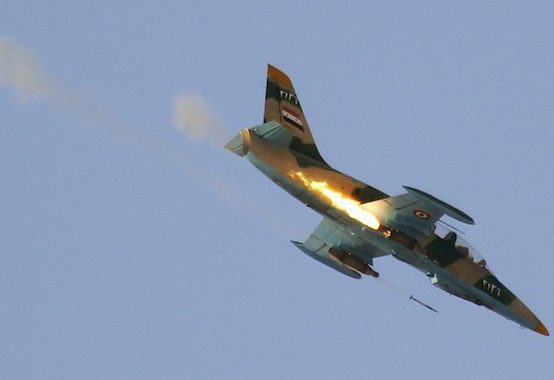Faulty Hawkish Perceptions in Foreign Policy Debates

Ryan Evans reviews the decision-making behind the Soviet intervention in Afghanistan and the misinterpretations that informed both Soviet and U.S. actions at the time. He applies this to the current debate over Syria and Russian intervention there:
We can see many of the same dynamics in and around the Hindu Kush of 1979 that we see today in and around Syria: disingenuous allies blaming America for not doing enough to provide top-cover to their troublesome and destabilizing activities [bold mine-DL]; members of both the Washington press corps and Congress willing to support this message for partisan political reasons; and announcements that “something” must be done and anything less than matching aggression for aggression is weakness [bold mine-DL].
There are several lessons to be drawn from this that are relevant to many other foreign policy debates besides the one over Syria. The first is that hawks on each side almost always perceive their adversary’s leaders as being stronger, smarter, and bolder than their own leaders, but this is often either untrue or misleading. They wrongly attribute grand, far-ranging plans to the other side while deriding their leaders are weak-willed and feeble fools with no strategy. Hawks also usually misinterpret reactive and panicky moves by the other side as an expression of a well-conceived strategy designed to humiliate their own side when it is really only supposed to prevent a humiliating setback for the other one. This is why many hawks have misinterpreted Russia’s intervention to shore up a weakened Syrian government as proof of growing Russian influence in the region rather than correctly seeing it as a bid to hang on to a fraction of the influence it once possessed.
Hawks tend to envy decisive action by other actors because it is what they crave from their own leaders, and they are blind to its potential pitfalls in both cases. Since they equate action with “strength” and military intervention with “leadership,” hawks worry about their side being displaced in a region if they “fail” to “lead” to such an extent that they don’t give any thought to what military intervention will cost their country. If another state “leads” by using force in a particular conflict, hawks are inclined to view this as coming at their country’s expense regardless of the interests at stake. That usually makes them think that their government must take sides in a local conflict even though the costs of doing so will almost always be much higher than the costs of staying out. This is why hawks routinely inflate peripheral and minor interests into “vital” ones that have to be defended at great cost.
Because they often don’t recognize when the other side is making a terrible mistake by intervening, hawks are usually in favor of answering a blunder with a similarly misguided response. That is why the common hawkish refrain in response to Russian intervention in Syria has been that the U.S. has to match and even outdo Russia by taking reckless military action. There is now more bipartisan support for a “no-fly zone” in Syria than there was before the Russians started their bombing despite the fact that the Russian presence makes a “no-fly zone” far more risky and even less desirable than ever. Even though the Russian intervention is already much less successful than Moscow thought it would be and seems set to drag on and cost more than they anticipated, our hawks still can’t wait to get the U.S. more deeply involved in the conflict there. It would be wise to see Russia’s blunder in Syria as a cautionary tale, but of course hawks see it as an invitation to make more blunders of our own.
Comments